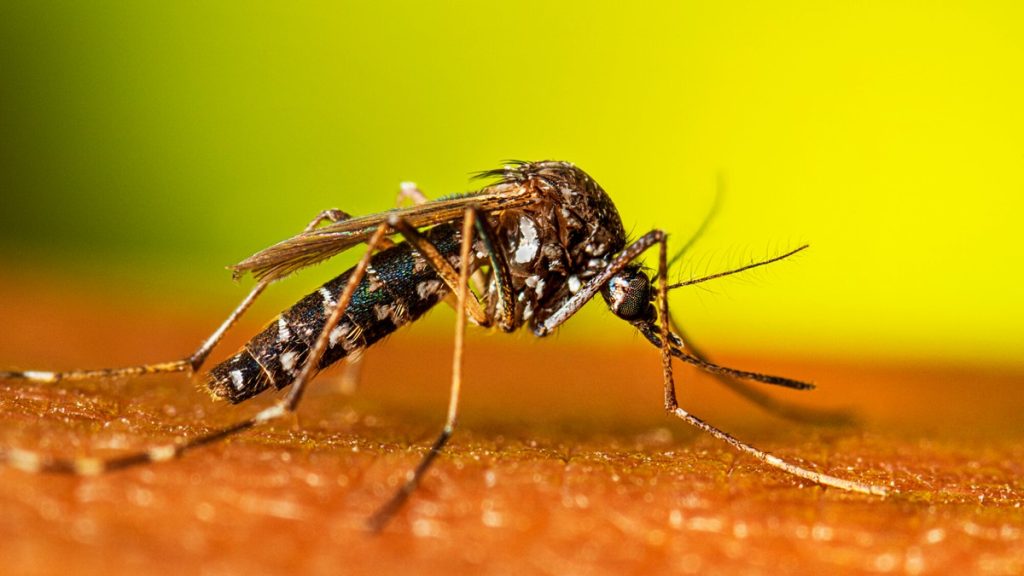Over the last ten years, Arlington has undergone massive changes, including nature-minded residents rejoicing over the latest fad of rooftop gardens. Although they provide benefits such as better air quality, energy mitigation, and so on, they have the unfortunate side effect of making ideal habitats for mosquitoes. After too many warm, humid Virginia summers, many Arlington homeowners eventually realize their gorgeous rooftop oasis is a buzzing nightmare.
This is especially problematic in Arlington’s dense neighborhoods, where rooftop gardens are often in close proximity, allowing mosquito populations to transfer from property to property easily. If you face mosquito problems around your rooftop garden, take the help of Local pest experts in Arlington you can count on to keep your green space and such pests at bay.
Why Rooftop Gardens Create Ideal Mosquito Conditions?
In Arlington County, where rooftop gardens create a veritable perfect storm of conditions for bugs, many unsuspecting gardeners encounter them for the first time. According to the county’s Environmental Health Division, residential mosquito complaints were up 35% in high rooftop garden areas between 2022 and 2024. The main culprit is standing water, which can collect in plant saucers, ornamental water features, and poorly constructed drainage.
A bottle cap of stagnant water is enough to breed dozens of mosquito larvae. Often, we find more than one source of water on these ground-level spaces that drive Arlington’s rooftop gardens; irrigation runoff pools in the corners of containers; rainwater gathers in plant pot saucers, and ornamental fountains or birdbaths, which create puddles over time and become perennial breeding sites. These conditions, along with Arlington’s warm, humid spring and summer months, create mosquito breeding factories right over our heads.
Plant Choices That Attract vs. Repel Mosquitoes
| Mosquito-Attracting Plants | Mosquito-Repelling Plants |
| Water lilies and aquatic plants | Lavender |
| Dense flowering bushes | Citronella grass |
| Plants requiring frequent watering | Peppermint |
| Broad-leafed plants that hold water | Rosemary |
| Bamboo with hollow stems | Marigolds |
| Hostas and large-leafed varieties | Basil |
| Plants with cup-shaped flowers | Catnip |
| Ferns in shaded, moist areas | Lemon balm |
Health Concerns Linked to Urban Mosquito Activity
There are a number of health risks urban mosquito populations in Arlington pose to residents, and here are just a few that should not be taken lightly:
- Transmission of West Nile Virus – 12 confirmed cases in Arlington County in 2023. Several were associated with urban breeding locations
- Zika virus potential – Aedes mosquitoes do not live in Virginia, but climate change makes established populations of these mosquitoes more likely
- Eastern Equine Encephalitis – A potentially severe neurological disease, with reports in adjacent Virginia counties
- Allergic responses – In susceptible individuals, mosquito bites may lead to severe allergic reactions and secondary skin infections
- Sleep disruption and quality of life impacts – Constant buzzing and biting affect mental health and quality of life.
- Pet health issues – mosquitoes can transmit heartworm to dogs and cats, which requires costly preventative treatments
- More chemical repellents – Longer-term use of DEET and other chemicals could have longer-term health consequences
Importance of Professional Help!
Controlling mosquitoes near rooftop gardens takes more than removing the standing water and potting all the repelling herbs. Trained pest control professionals understand the urban rooftop ecosystem and are trained to find breeding grounds that homeowners often overlook. They use integrated pest management strategies that keep beneficial insects safe while eliminating target mosquito populations.
That is why Green Pest Services has a lot of experience working with Arlington from the ground up, right down to your rooftop garden mosquito. They know the local laws when it comes to pesticide usage within neighborhoods, and they know how to create treatment plans that will protect your plants as well as our pollinators. Their technicians search for breeding sites in complex rooftop irrigation systems and can also advise on structural modifications to inhibit future infestation.


Comments are closed.